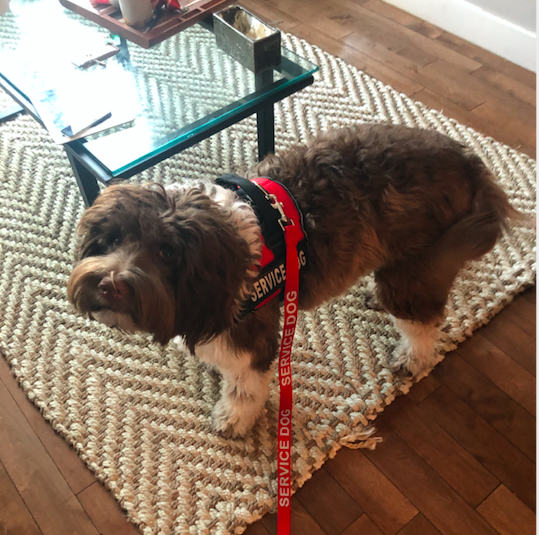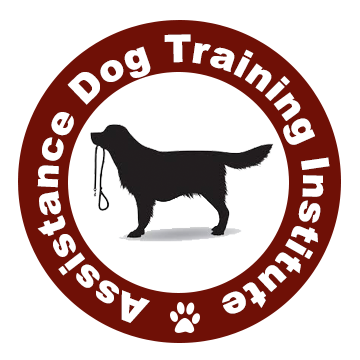About ADTI
Dogs Placed
Positive Feedback
Trainers Certified
Active Teams
Laurie Jones has been professional dog trainer since 2010 and founded ADTI in 2014. She divides her time between Toronto, ON and Vancouver BC, offering training in both regions throughout the year. Laurie also presents at conferences, delivers training and advice to industry professionals, teaches at educational facilities and has extensive experience training dogs for obedience, therapy work and film & TV.
Laurie is a teacher who is passionate about helping people understand their dogs and helping them live happily together.
Qualifications
- Certificate IV in Dog Behavioural Training, Vocational Education and Training Accreditation Board (October 2014)
- Cert IV in Training & Assessment TAE 40110 (December 2016)
- Certificate IV Workplace Assessment and Training (July 2014)
- Accredited Administrator of the Myers-Briggs Type Indicator
Recent Graduates

Sadie

Harley

Bodhi

Dover

Cosmo

Juliette

Ella
Buster
Our Training
ADTI provides custom training for service dog owners based on individual needs. We use positive reinforcement methods to teach the behaviours that are necessary for dogs working in public settings and to train the specific tasks you need from the canine partner in your life. Our trainers have experience working with children, adults, and families training their dogs to create successful dog/handler teams.
We specialize in a personalized approach that focuses on how your partnership with your service dog will help you overcome the challenges you face in your home and public. We use positive reinforcement methods to teach the behaviours that are necessary for dogs working in public settings and to train the specific tasks you need from the canine partner in your life. We either find a perfect puppy for our client, adopt and train, or start training a dog that the client already owns.
Service/Emotional dogs increase freedom and independence by assisting in everyday life. Service/Emotional dogs can improve the lives of people with a wide range of disabilities, whether physical, neurological, or psychiatric. We train dogs to mitigate symptoms of many disabilities such as autism, anxiety disorders, depression, diabetes, epilepsy, hearing impairment, multiple sclerosis (MS), narcolepsy, post-traumatic stress (PTS or PTSD), severe allergies, spinal cord injuries, and traumatic brain injuries (TBI). We also often customize tasks for a specific client’s needs.
The following are examples of the most common disability skills we teach:
DETECT:
-
Allergens, such as specific foods or triggering odors
-
Low blood sugar levels
-
The presence or absence of people in a designated area or location
-
Change in cortisol levels
ALERT:
-
To people approaching
-
As a response to your name or someone trying to get your attention
-
For specific sounds, such as alarms, ring tones, sirens, or vehicles backing up
-
For specific smells, such as smoke or gas
-
Seek help from someone else when you have a medical emergency
-
Press a medical alert button for designated emergency contact
-
Wake-up alerts
SUPPORT:
-
Act as a positional buffer – behind, in front, looking the opposite way, or circling
-
Turn on and off lights, including turning on the light for you before you enter a room
-
Open and hold doors
-
Provide bracing for you to stand up or steady yourself
-
Tug or hold clothing, socks and shoes to assist with dressing and undressing
-
Pull to assist manual wheelchair propulsion
-
Target away from walking out into a street or other dangerous areas
-
Offer a signal that allows you to excuse yourself from the company of others politely
CALM:
-
Apply or receive deep pressure therapeutically
-
Cuddle on cue
-
Interrupt repetitive movements or compulsive behaviours
-
Lead to uncrowded area or place to sit down
-
Respond to anxiety or panic attack
-
Interrupt nightmares or night terrors
RETRIEVE:
-
Get personal items and bring to you, such as keys or cell phones
-
Carry items for you
-
Deliver payment to store clerk or receive and carry merchandise for you
-
Open and close doors, cabinets, drawers or appliances to bring you something from inside
-
Bring medication to you at a designated time

